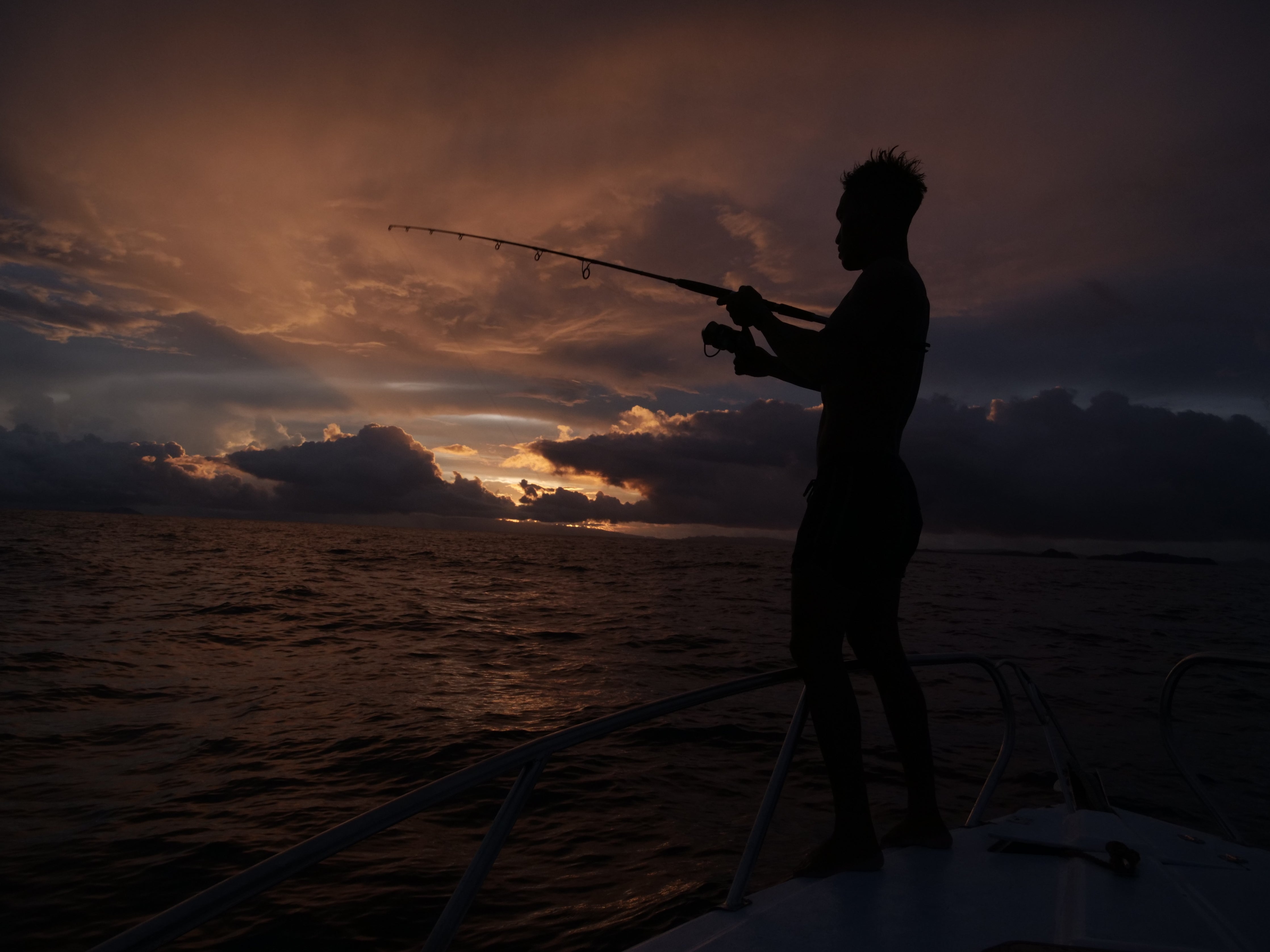Table of Contents
Other than the idea of fish being scared off by talking anglers, another popular fishing myth is that fish don’t bite in the rain, and that therefore, you won’t be able to fish while it pours. To be fair, there is a little bit of truth to it. The only problem is that it doesn’t tell the whole story.
They still bite, just less
The truth is, it’s not that fish don’t bite while it rains; their activity just decreases, leading to lower tendencies to bite. Rain oxygenates and makes water murkier, which causes an influx in predator and prey fish. Fish take time to adjust to these changes caused by rain, though, which is why it’s better to fish when the rain stops. But more on that later.
Fish adjust to multiple changes when it rains as it reverses their activity rhythm. On top of oxygen and temperature levels, rain water causes sudden changes in salinity (how salty water is) and turbidity (cloudiness or haziness of water) in water. How fast water flows (also known as water velocities) when it rains is yet another adjustment fish have to go through.
This adjustment period is precisely why they bite less during rainy days! But there’s a catch: these facts only apply to when it rains heavily. Light drizzles are no threat to your catches and could actually be more helpful to your fishing by making fish more active. This is because stronger rain makes for more rapid changes in water.
Another exception is that if you’re a bass angler, rain will actually be good for you. Because of bass fishes’ heightened sense of smell, they become more aggressive during the rain, resulting in easier catches. Largemouth bass, for example, will be more active than other species.
Fishing after the rain is generally better
But if you’re just the type to fish for whatever’s there, it’s best to fish after it pours. Because by then, fish would have already adjusted to the sudden changes in water. Getting more oxygen during the rain means that fish will be hungrier though, so make sure your chumming game is on point then!
While you’re at it, use brighter bait as well. Remember: rain makes for murkier waters, decreasing visibility underwater. Colorful tackles would be easier for them to see and bite.
Lastly, know exactly where to fish! Topwater or a few feet under the surface is generally best when the rain stops as higher activity means they’re likely in shallower waters. Now that you know how to time your fishing trips in consideration of rain, make sure to check out our blog for more fishing tips and tricks!
MOST READ NEWS:
How To Use Your Fishing Records to Catch More Fish
Track your fishing trips, analyze patterns, and refine your techniques with a fishing log to catch more fish on every outing!
Solo Fishing Safety Tips: Stay Safe and Enjoy the Outdoors
Learn essential solo fishing safety tips: gear checklist, boat safety, emergency preparedness, weather monitoring & fishing location scouting. Stay safe on the water.
Secrets to Winter Fly Fishing Success
Master winter fly fishing with expert tips on trout behavior, essential gear, and proven techniques. Learn the secrets to catching more fish in cold weather.
How Cold Water Changes Fish Behavior: Insights for Anglers
Explore how cold water affects fish behavior and fishing techniques, enhancing your angling success and strategy.
Is Tech Making Fishing Too Easy? Exploring Forward-Facing Sonar (FFS)
Learn about forward facing sonar in fishing - what it is, how it works, rules for tournaments, ethics, and tips for finding fish with this game-changing technology.
Plan Your Best Fishing Trip Yet this 2025: A Complete Guide
Plan your fishing trip this off-season. Learn to choose destinations, prep gear, pick bait, and trust Baitium for expert tools and tips!
15 Fishing Resolutions for 2025: Set Yourself Up for Success
Discover 15 essential fishing resolutions for 2025: tackle organization, gear maintenance, angling techniques, conservation tips, tournament prep, and fishing safety guidelines.


